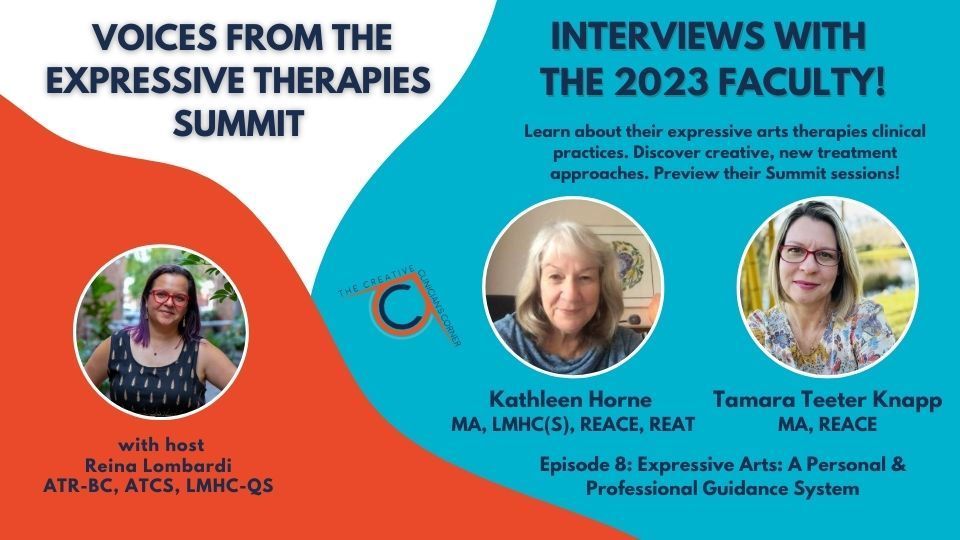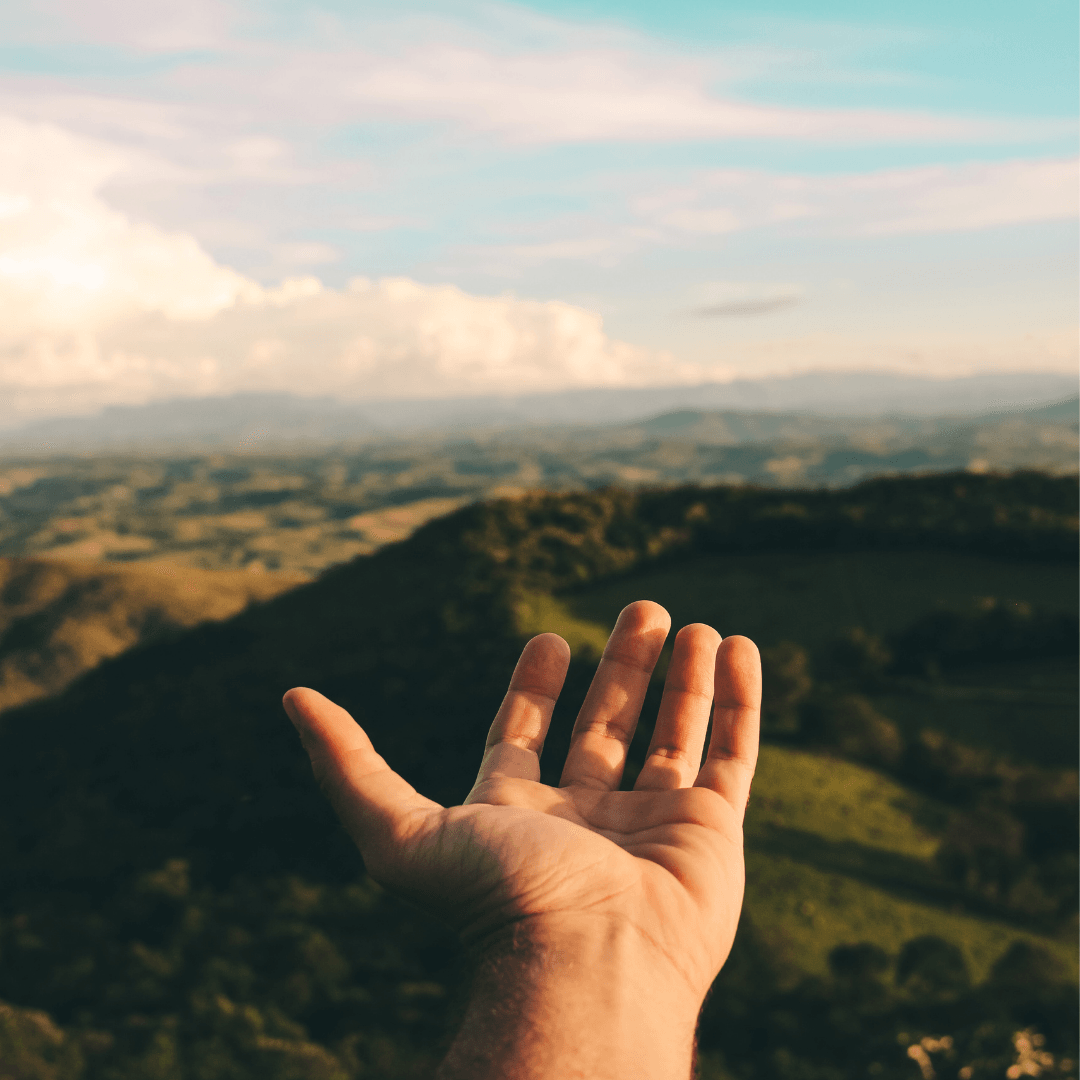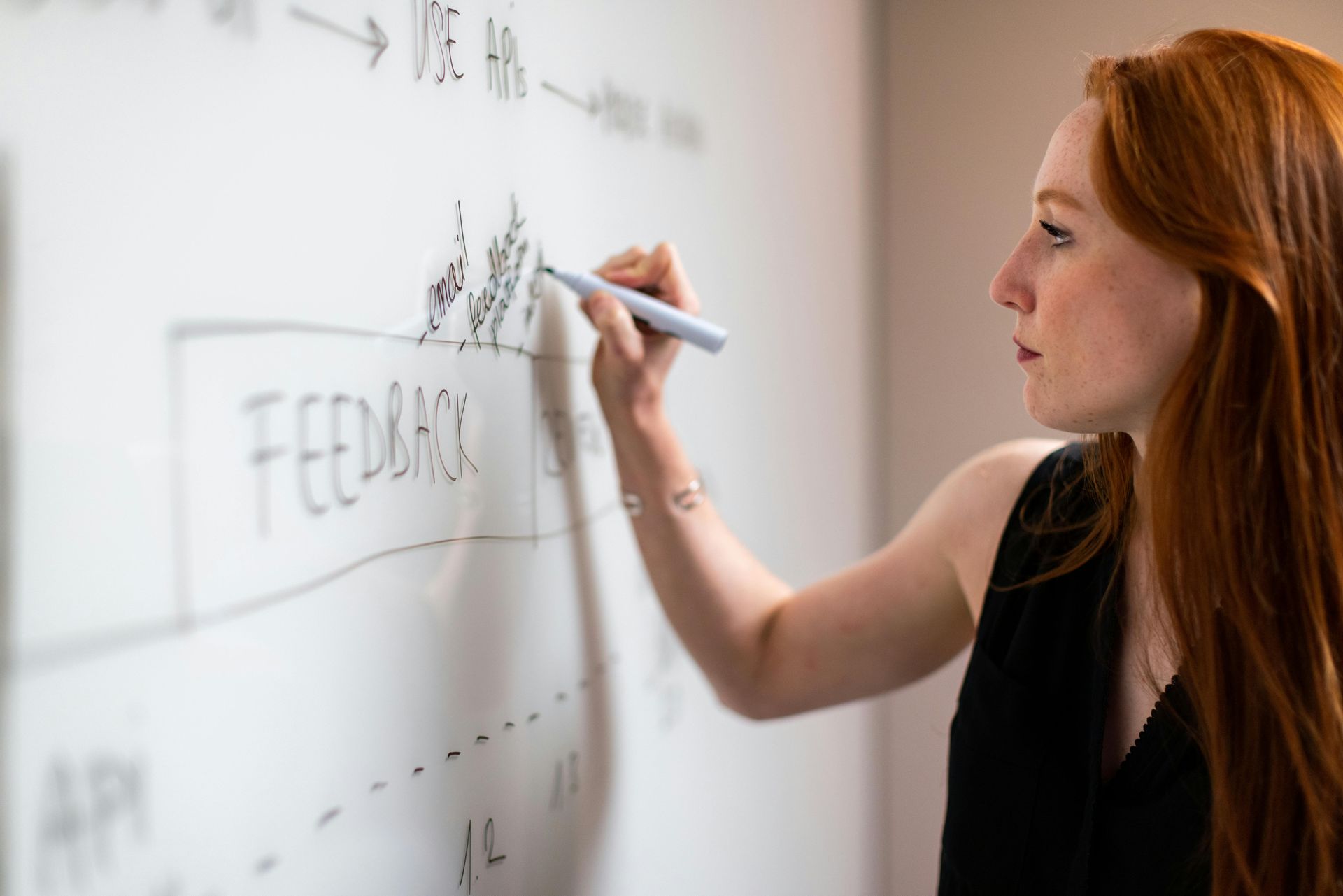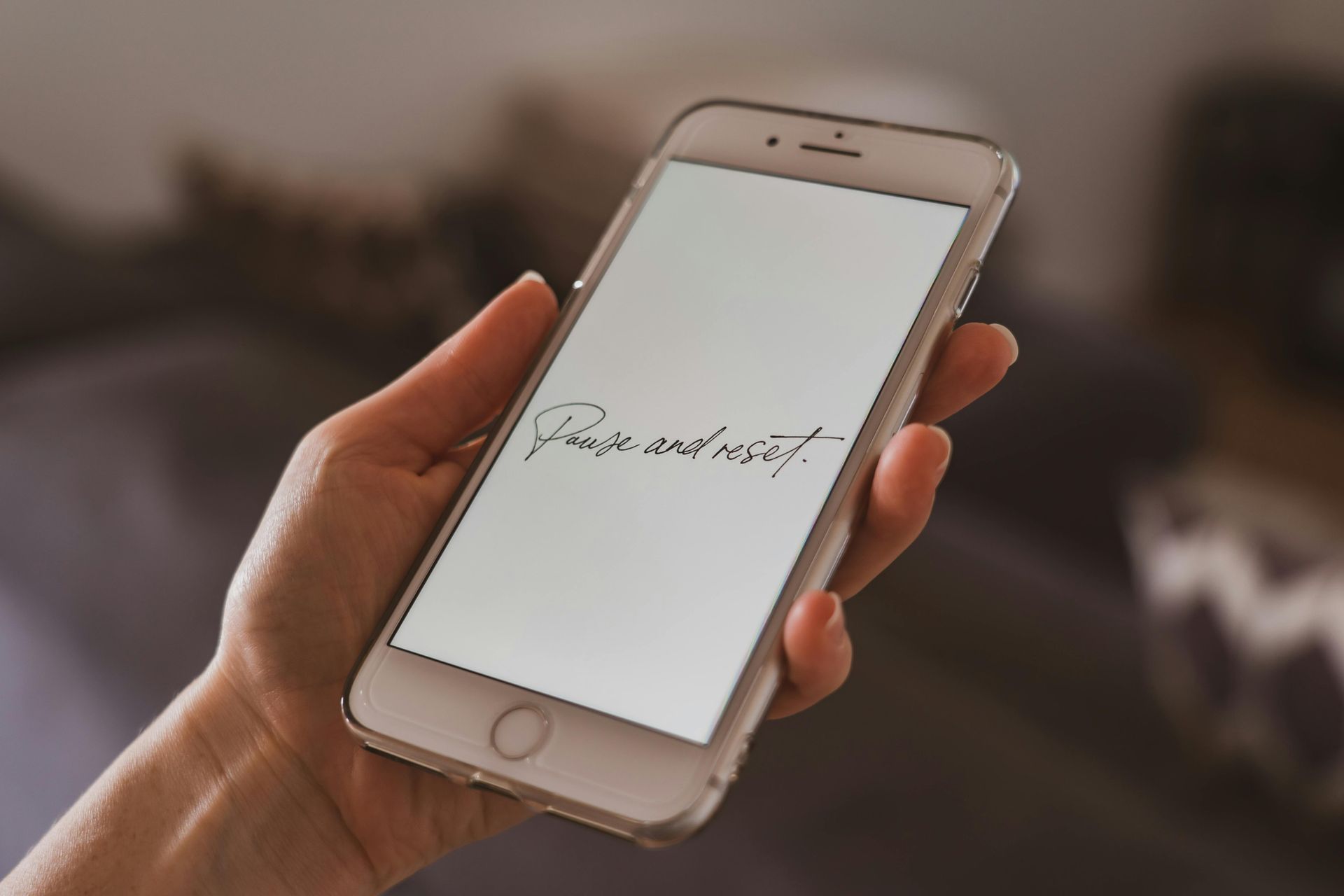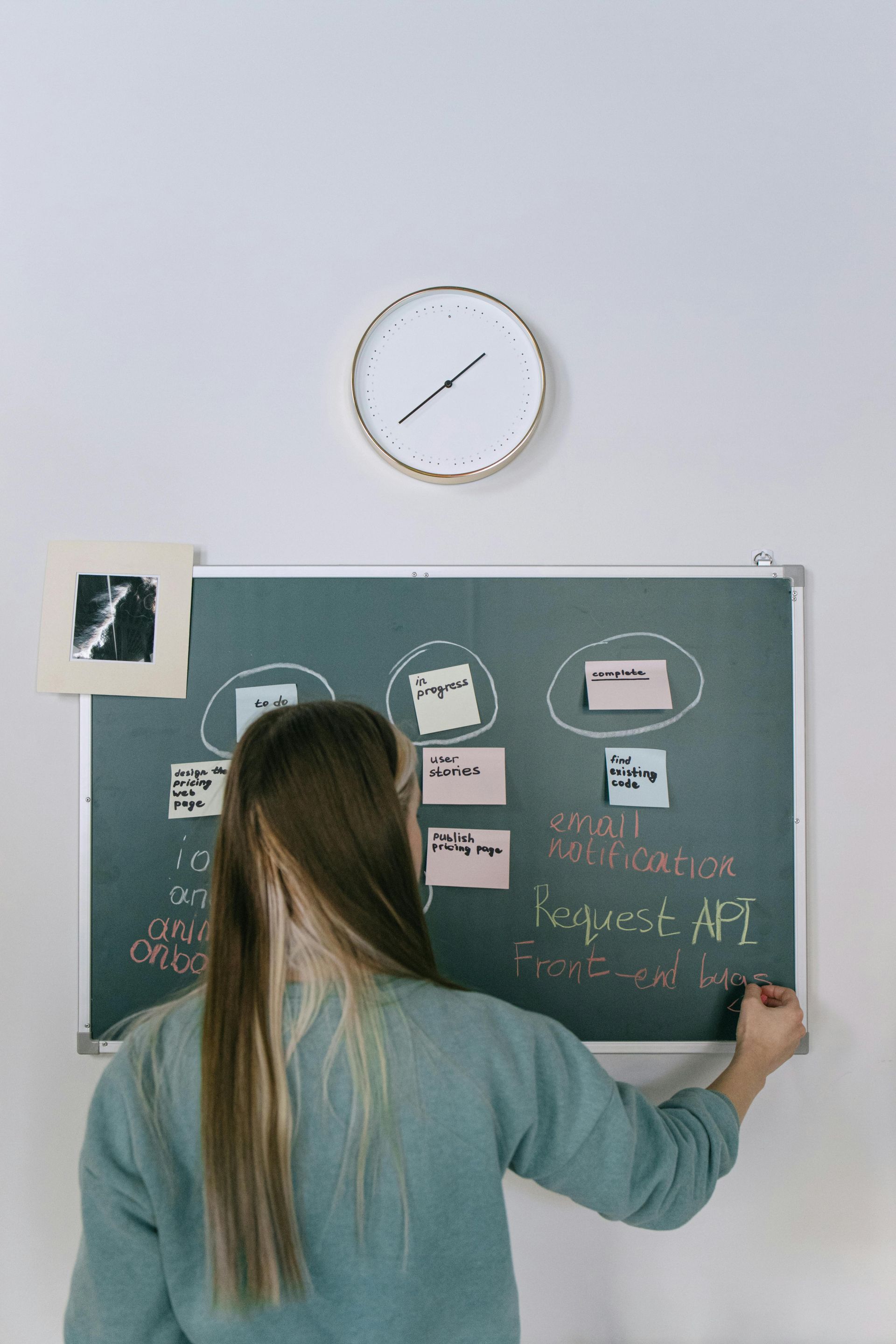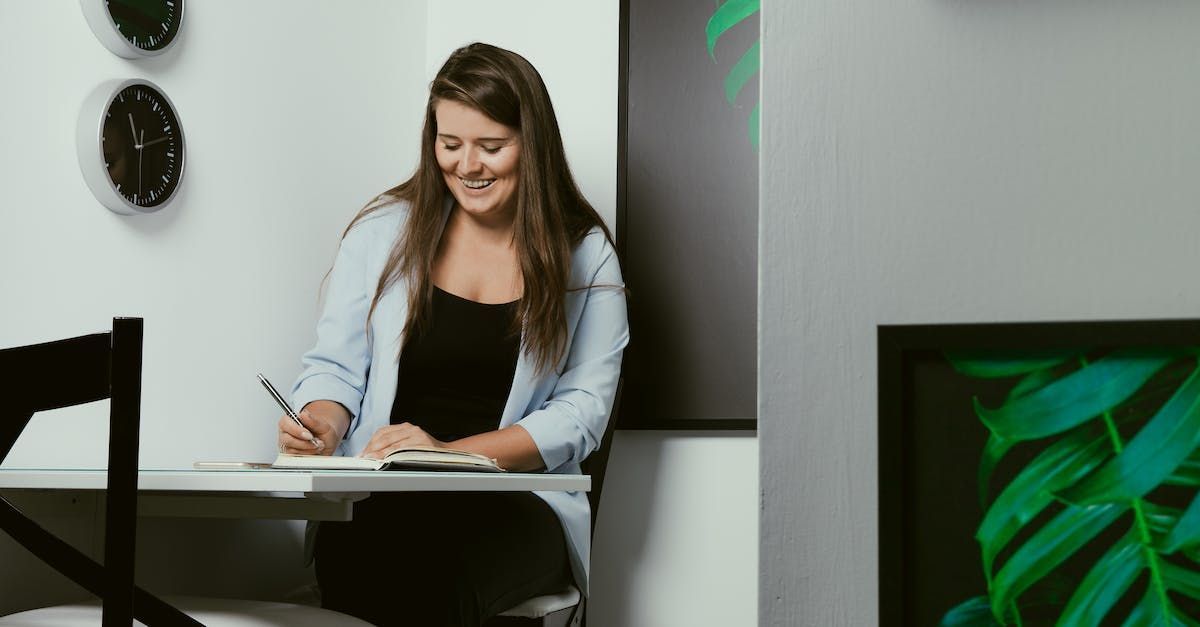VFTS 2023 8 | Kathleen Horne & Tamara Teeter Knapp | Expressive Arts: A Personal & Professional Guidance System
FEATURED GUESTS: Kathleen Horne, M.A. LMHC, Registered Expressive Arts Therapist (REAT), Registered Expressive Arts Consultant Educator (REACE) has been a psychotherapist since 1980 and an expressive arts therapist since 1996. She has a M.A. in Counseling from University of South Florida, and a Graduate Certificate in Expressive Arts Therapy from California Institute of Integral Studies. Her training and practice in expressive arts has been life-changing, both personally and professionally. Kathleen is Co-Founder and Core Faculty of Expressive Arts Florida Institute, and, since 2011 has been training students in the field of Expressive Arts, as well as offering a wide variety of workshops and community programs. She believes that expressive arts is a wisdom practice, and is dedicated to living and sharing the transformational gifts it offers. She is a visual artist, with a love and life-long practice of creating mandalas. Kathleen divides her time between Sarasota, FL, and Cortes Island B.C. She has been a board member of IEATA since 2007, and is proud to be the recipient of the IEATA Shining Star award for 2023.
FEATURED GUESTS: Tamara Teeter Knapp, MA, REACE, Mental Health Counselor Intern, Certified K-12 Art has 20+ years’ experience educating others through the arts. She is co-founder and core faculty at Expressive Arts Florida Institute and began her teaching career as a Waldorf teacher in 1997 in Alaska before relocating to Florida where she taught art and elementary education. Tamara continues to value the integration of arts in education and has been training others in the field of expressive arts for ten years. Since earning a master’s in mental health counseling, she has worked to integrate her extensive experience and knowledge of expressive arts in her clinical work. Tamara continues to develop her interest in body-based intermodal processes that integrate theories in neuroscience and creative modalities. The focus of her work is to help others to discover the healing and transformative power of their own creativity.
LISTEN & LEARN:
- The origin story of Expressive Arts Florida.
- Accessible learning opportunities to become a Registered Expressive Arts Therapist.
- How Kathleen & Tamara define self-compassion and use the arts to practice it.
- How they use collaboratively use the expressive arts as part of business administration and development.
RESOURCES MENTIONED ON THE SHOW:
- www.expressiveartsflorida.com
SESSIONS AT THE SUMMIT:
- Thursday November 16th, 2023 10:00AM-1:00PM Cultivating Self-Compassion Through Expressive Arts Practice
- Cultivating Self-Compassion, an experiential intermodal expressive arts session for all counselors and therapists, offers an opportunity to build skills of self-compassion using imagination and expressive media. Drawing upon imagery and contemplative practice, participants will identify ways to provide self-compassion in response to emotional pain and difficulty. They will discover a creative approach to working with themselves and others to provide tools of self-compassion that contribute to healing and growth. Through the introduction of simple expressive arts practice, participants will consult their own inner knowing and be guided through a simple, nourishing experience that can easily be taught to their clients in treatment in virtually any clinical setting. Participants in this 3-hour virtual workshop will be invited to share the gifts that their images bring, connect within and in community, as well as witness their own and others' compassionate presence.
Read the full transcript below...
Hey there creatives, I'm excited to bring another bonus episode of the voices from the
expressive therapy summit series to you today.
This episode I am speaking with Kathleen Horn and Tamra Teter Knapp who are expressive arts therapists and they own and operate expressive arts Florida, which is just north of me in the Sarasota area.
And I've been following them for years mostly because in where I live there's just so few
businesses that are focused on the expressive arts that when I learned about what they were
doing, I was immediately interested and really was looking at oh they have great speakers
coming into town.
Unfortunately, I was never able to go up, but I also knew that they were providing
an opportunity for folks to learn how to do this work in a format that allows somebody
to obtain the registered expressive arts therapy credential through the International Expressive Arts Therapy Association.
Which I think is a really amazing opportunity because people want to know how to do this
work or like what the educational requirements are often and a lot of times it feels inaccessible. And this was really accessible because it's so close by.
Anyway, they are going to be presenting at the upcoming virtual expressive therapy summit
November 16th from 10 a.m. to 1 p.m. and they're going to be talking about cultivating self
compassion through their expressive arts practice.
You can join in from wherever you are in the world because it's going to be virtual.
And honestly, it sounds like an amazing opportunity to feed yourself, to feed your soul, to engage in meaningful creative practice that taps into your creative flow and inner wisdom.
And I hope that you enjoy this conversation that I have with both of them, which really
talks about their process.
And one of the things that I found so inspiring about their work is how they're so true to their
value of using the expressive arts as a way of knowing, being and working in the world.
And hopefully you'll hear that kind of come full circle in the conversation.
Welcome.
Now here's your host, Raina Lombardi.
Thanks for listening to the Creative Psychotherapist podcast. I'm your host, Raina Lombardi. And I'm super excited to welcome my next two guests. I'm kind of fan-girling a little bit right now. I've known about their work for quite some time and so I'm so excited to talk with them and share their work with you.
So my guests are Kathleen Horn, who is a licensed mental health counselor.
She's a registered expressive arts therapist, a registered expressive arts consultant educator
and has been a psychotherapist since 1980 and an expressive therapist since 1996.
She is a master's in counseling from University of South Florida and a graduate certificate
in expressive arts therapy from California Institute of Integral Studies.
Her training and practice in expressive arts has been life changing both personally and professionally.
Kathleen is the co-founder and core faculty of expressive arts Florida Institute.
And since 2011, she's been training students in the field of expressive arts as well as
offering a wide variety of workshops and community programs. She believes that expressive arts is a wisdom practice and is dedicated to living and sharing
the transformational gifts that it offers.
She's a visual artist with a life-long practice and love of creating mandalas. Kathleen divides her time between Sarah Soda, Florida and Cortez Island, British Columbia.And she has been a board member of IEDA, the International Express of Arts Therapy Association
since 2007 and is the proud recipient of the IEDA Shining Star Award for 2023.
Wow, congratulations, Kathleen, that's awesome.
And Tamara Napp, who also is a registered expressive arts consultant educator, a mental
health counselor intern, and a certified K through 12 art educator with 20 plus years experience educating others through the arts.
She's the co-founder and core faculty at expressive arts Florida Institute and began her teaching career as a Waldorf teacher in 1997 in Alaska before relocating to Florida where she taught art and elementary education.
Tamara continues to value the integration of the arts and education and has been training
others in the field of expressive arts for 10 years. Since earning a master's in mental health counseling, she has worked to integrate her extensive experience and knowledge of expressive arts and her clinical work.
Tamara continues to develop her interest in body-based intermodal processes that integrate theories of neuroscience and the creative modalities. The focus of her work is to help others discover the healing and transformative power of their own creativity.
Thank you both so much for being here.
Thank you so much. So both of you are going to be teaching at this year's virtual East Coast Expressive Therapy Summit and you're going to be teaching on the art of self-compassion through expressive arts practice.
Can we first start off Kathleen by talking about what is self-compassion?
Well that's a great question to begin with. Thank you so much. When I think of self-compassion and I think of self-compassion within the context of expressive
arts, I think about being a loving witness to ourselves and bringing that spirit of bearing
witness holding space to ourselves, to our own inner life, to our struggles, our challenges,
our accomplishments, to give ourselves the gift of what we as compassionate people and
therapists and teachers give so easily and readily to another.
Tamara, anything to add to that definition?
Well I love that phrase I wrote down, loving witness and something that I think is very
true about self-compassion.
I know that I look at self-compassion too through the lens of like Christen Neff which really includes mindfulness, self-kindness.
I was not just about, I mean compassion includes kindness, being kind to ourselves and common humanity, right, connecting these three things.
So when we turn toward something with self-compassion, we connect within ourselves, acknowledging and being kind and mindful of whatever is that's tender.
And when we connect then within ourselves in that way, we can also connect to others in. that way. And so there's this beautiful like loop, right, that happens. And so it's like turning towards something that is needed with kindness and love and offering
that back to ourselves.
I love that, I love that. I too love the phrase loving witness, being a loving witness. It's often we don't allow ourselves to witness our own process in the same way that we
might do for others.
And yet when we do, it really makes a big difference. Yeah, I could kind of see the loop from within like your heart space out to the other person's heart space through that process.
Do either of you have a your own kind of method or ritual with your art's practice that
integrates that regularly? Tomorrow shaking her head, yes. Yeah, of course.
Yeah. Well, I do. And that is something I've come to, I've begun to practice, which is when I'm feeling a little bit, and that's really I think what this teaching or experience will be in the
summit about is that when I identify that they're for myself that there's something, like I
said, that's feeling tender that is I'm having some difficulty with.
I first then I kind of ask, what is the need?
And what is it that I need?
And, and then I offer that need some compassion in a sense and offer it back to you.
And the way that I often identify what it is I need is through my art practice.
So something's negalling at me, right?
What is going on here?
I can't seem to settle or I'm feeling agitated or just kind of whatever, I don't know.
And I create around in my practice maybe create an image or do some movement or sound.
And it just depends on that, you know, the time and what I'm what I'm grappling with.
And then from that place, then I can offer back what it is that I feel meets that need,
right?
And sort of offer that back to myself.
So, a regular art practice for me is really about that being present to what is arriving
within me and offering myself the compassion that I need.
And then it does really help to meet the need that's being called calling me.
There's like some honoring there.
There's honoring your space and time to allow yourself to discover what that is and then respond to it in a way that is meaningful and attends to what's happening in that moment.
Yeah.
Kathleen, how about you?
Do you have your own method that maybe similar, maybe different? Yeah. Tamara's? Yes, I do. I've never, I didn't start doing this as a way to cultivate self-compassion, but my
arts practice certainly does.
And picking up on what Tamara has said about being present for ourselves, I find what
I, what I do mostly in my expressive arts practice is I just make it a habit to come to my
space, to sit down, to take a few moments, to connect with the earth and connect with my
heart and connect with that what I call ever present, ever abundant creative flow.
Remember that it's there. Remember that it's wise and open my heart to that. And then just it usually open my journal sketchbook and make an image. It's usually not anything that I recognize from the outer world.
It's colors and shapes on the paper and usually a mystery.
But I don't try to figure it out.
I give it a voice then. So sometimes I'll move to it, take the energy and move my body, often without even getting up out of my chair.
And then I'll write and I usually write from the voice of the image.
So I start with I am or I know.
And then somehow my image speaks and I just write down whatever it says.
And what happens for me is that through that practice I am staying connected with myself.
Right?
I am staying current with what's going on inside of me. And when I don't do that, when I feel like I'm too busy or I'm too this or I'm too that and I find myself moving away from that practice, that's when things start to build up internally that I feel like I need to really consciously pay attention to.
Right?
Yes.
A lot of wisdom that you just shared there is so easy to for us in our current state.
So I think that's the kind of society how fast pace things are to fall victim to that.
Like I don't have time to take care of me.
I don't have time to carve out the space to take care of my needs, which I think there
is a need.
There is an inherent need for all of us to express ourselves creatively. Yes. I believe that.
So we don't give ourselves your right.
We don't give ourselves that time at it hurts. Yes.
And you know, it's sort of like Tamara was talking about that loop.
Right? And we can't leave ourselves out of that loop. We have to nourish and feed ourselves.
And I don't expect it's this way for everybody, but for me, it's through my creative practice
that really feeds, feeds that need for being aware and mindful and a witness to myself.
Yes.
Yeah, it also sounds like not just being that witness to yourself, but it's also about
refueling yourself and making sure that you have the energy resources to be able to extend from your heart to other people that you're helping and being with.
Yes.
Absolutely.
Yeah. So what are you going to be doing in the three hour workshop with attendees that go to
the summit and participate in the self-compassion training that you're offering there?
Well, we will be doing a very, is it will be a very, very, very experiential process that
will offer that will be simple, a simple express of our process, but again, really with
that focus of how do we turn towards something that is in need and offer self-compassion to need that need?
So in expressive arts, we use all the many different arts modalities, not necessarily all of them every time, but in the experience, we will guide very, very carefully and gently guide
everyone through a process that will include several different arts modalities to identify
the need that they have.
Practice they'll be able to repeat again, right?
So in that moment, focusing on the moment and somebody that might be present in that moment, how do I identify that, express that, and then offer that, offer some self-compassion around that.
And then one of the things that's very powerful in the whole process, I think, is the witnessing
piece, Kathleen was just thinking about.
We always, we have, basically, a five-step approach in the way that we work.
And one of the parts of that is distinct and that is witnessing.
And that's really the piece.
So that will be part of the process as well.
And I think by offering self-compassion to ourselves in the process, and then witnessing
one another will actually be able to receive that sense of feeling seen and heard by ourselves
and one another.
And so it will be an interactive, you know, experiential process.
That will be something that they can do again and again for themselves. And also those who are attending will be able to, I think, pretty easily translate to their-- you know, to clients they're working with or other implications.
Yeah.
Yeah.
Kathleen, for folks that are listening, that maybe they identify as their modality as music,
they do music therapy, or maybe they're a drama therapist, but they haven't had exposure to the intermodal process.
Could you mind sharing how that differs from, say, just distinctly another creative or
expressive arts therapy approach?
I know I'm familiar because that's -- I went to Leslie and -- and that's their thing and I love it.
But for listeners that maybe aren't as familiar.
Or that's just such an important question and it's a big question. And I guess I -- what I'll try to do is I'll try to answer it in a concise way.
Sure.
So I think that in intermodal or multi-modal two phrases that are often used interchangeably, although we think there are distinctions between them.
In intermodal work, it's kind of like where the power is is in what we sometimes refer
to as that thread of creative expression that moves through different modalities if we
learn how to listen, right?
So it doesn't really -- as a practitioner or a therapist, we have to have familiarity with
all of the modalities. We have to be able to kind of traverse that area -- all the areas, but we do not have to be experts in all the modalities.
And truth be told, most expressive arts therapists and practitioners, we have modalities that are most natural to us.
I'm very grounded in visual art and in writing and Tamra is really grounded in movement
and visual art.
So we have our places of maybe beginning and returning to, but we also have that enough
familiarity to be able to follow that thread and to see in a person that we're working
with.
What is their modality?
Just their language might show that they're a very auditory person or they might be using
their hands a lot and so they're already moving and showing us that movement might be a really good place to start, right?
They might be like, I'm always like looking up when I'm thinking, like, I'm looking up when
I'm thinking and I'm very visual, right?
I'm also very kinesthetic.
So it's sort of becoming attuned to how that thread of creativity moves through myself
and anyone that I'm working with, how it moves through a group, right?
So we become attuned to what sort of invitations to offer as places to start and then each, you know, we watch children, they don't distinguish, right? They're dancing around while they're telling a story, you know, or they're singing while they're painting.
And, you know, that's, but we forgot that, you know, because in our culture, the arts
have been divided up, right?
And that's fine. It's not there's anything wrong with that, but this is kind of reclaiming that thread of creativity that we can follow and as we follow it, we follow it into different parts of ourselves through different modalities.
We follow it into our emotional body.
We follow it into our physical body.
We express it through movement or through rhythm or through voice and then we reflect on it through writing. You know, I mean, it's a, I'm not sure what else to say.
I think that, I think maybe I should have knocked. Maybe you have something to add, Tim, right? Yeah. I think you're thinking pretty well. So we just follow from ship from one modality to the next and just stay with, you know, what's present.
And then it feels like when we do that each time we shift, there's an opening, right?
And I have an expansion of our awareness, you know, and really we have as humans, I think,
so many ways of knowing.
But that our dominant culture doesn't always encourage or support.
So it's for me, I find it to be as I, you know, see other people and for myself as well, just
this like reclaiming and learning, even relearning or remembering, perhaps all these different ways of knowing how to know myself in my world and what another and, you know, I mean, sometimes there are things that we really know inside, you know, we know it, but we don't have words for it.Yeah.
And there are other ways of expressing those things that we know as well. So it's not just ways of knowing, but ways of expressing who we are in the world and really just kind of moving into the fullness of who we are and becoming very whole in that way.
Yeah, I feel like the process, at least in my experience is deepening, deepening that
sense of knowing that you're describing because we're allowing ourselves to explore it from a different perspective.
And it's like amplifying, it's amplifying that sense of really getting to know whatever it is.
Because we're giving our self permission to play around with it in all of these different
ways. Because to know something through what it feels like to move our body to express a concept is so different than to know something through what it feels like and looks like to express it in paint or in play.
And then of course, with our words, to give it voice, like you were talking about, I often
as a supervisor, I encourage my supervisors to do that process, that giving voice to the
image process.
And a lot of them are like, what are you talking about? Because it is a very expressive therapies technique. And they're a little resistant at first. But I'm like, please, if you just let yourself be vulnerable and try it, it's really magic happens.
There's so many gifts that come with that process. It's beautiful.
Yeah. It is a vulnerable thing to ask, right?
And it's also so rewarding. And I think it builds, also builds self trust in the scene.
Oh, I can do this.
And as I do it, I can trust that it works.
And it continues to, you know, I love that you just use the word amplify.
I think that is very true.
Yeah.
So I think so many people believe this work is about, we're going to have a lot of things
going to ask them to make an image or to create a movement or something.
And then we're going to talk about what it means, right?
And we don't really do that.
You know, we see our role as facilitating the relationship between the artist and the
image.
How can I support you so that you can learn more from the images, from the movements, from the sounds, from the rhythms that you create? And that's where the wisdom is.
It's in that relationship. And as we move through the modalities, it's often the modality that we're the least comfortable with, that brings the biggest shift.
Not always, but often that's the case.
So really being able to create safety around helping people just take those gentle risks
to move into something that yes, it's going to feel a little weird at first.
The movement doesn't have to be covering the whole room. It can be as simple as moving your hands and you'll still derive something new. Yeah.
I love that you made note of that.
It's often in those most vulnerable places where really transformational information comes to the surface.
So I want to shift gears a little bit and kind of go into how the two of you came to
found expressive arts, Florida, and share and teach others how to do this work because
it is such a unique program that you don't see very often.
Tamara, would you mind sharing a little bit?
No, I don't mind. It's such a wonderful question. Such a long story that I'll try to make very short.
I would like to say that I, Kathleen, actually is the one who has just heard in her bio, right?
She received her training at CIS and then she came back to Sarasota and she kind of held
the solo little candle light of expressive arts here.
And I came to Florida in 2000 thinking I had left it behind where I was and I wasn't going
to stay long and I inadvertently met her and I also met Victoria who was one of the other
co-founders in our business in 2001.
And then they started a program and I got my certificate from them and then there was someone who got their certificate with me in t hat program Elizabeth and then before of us said, "Hey, we should start our own business," since we started a business in 2007, mostly doing contracts in the community and different works, different work like that.
And I was teaching full-time as an expressive arts teacher, actually in the school system.
So we continued for a few years.
We had a studio and a gallery and we had community contracts and then it became clear to the four of us at the time that we really needed something was shifting and in fact,
and so what we did, and this is what we always did when we developed our business and when we formed our business, we always made art together.
So our business is based on that.
And so we got together, we made this mandala together, we were affectionately called pie
pieces where each of us had a section.
And the very funny thing is that I went down to the storage unit to find the microphone today.
And you know what I pulled out of there, Kathleen?
I have them here, so many.
So the four of us, so we had this thing and what we did is through our art process really,
it showed us that what we needed was to in some way open up things and provide space for others to come in and learn more.
So that all, having said all of that led to us developing a training program, which we
started in January 2011.
And we haven't stopped since then, basically.
It was at least the way I feel, and I think I speak for Kathleen as well, but we just feel
like this work is so needed in the world.
And we couldn't do it all by ourselves, right?
And so over time, the partnership of four was three and then became two.
And so now it's just Kathleen and I, but the beginning of that was really the four of
us deciding that we really need to disseminate this work right out into the world in a much
bigger way.
So we started teaching others.
And it's been extremely wonderful, leading for awarding, I guess, is how I feel about it.
So since 2011, we've had a certificate training program. Awesome. And I had a couple of small things to that. I just love tearing you say that, Tamara. And I was really glad that you got that question, not me.
But I think the thing that I want to emphasize is what you touched on that are our business
and our training program was built through the arts. And even before the four of us decided to create a business, there were a few more of us. I think there were six people in the beginning that we were all just getting together every week.
And we would sit around this little table in this little tiny studio that we had.
And we would just make art together.
And we'd do different kinds of arts practices. And we would talk. And we were like, we're being kind of called together.
And something is emerging out of this.
And we don't know what it is yet.
And we have continued to follow that.
If you can call that a model, follow that model throughout the entire creation and evolution
of this business.
And working out the questions and challenges as they come up through the arts, usually through some collaborative art making.
Yeah. I love that. That's such a beautiful thing to share, I think with others, that business development doesn't have to be just, you know, spreadsheets and business plans that connecting through the artistic process and exploring what's working, what's not working, what do we want to do differently
here?
Is possible that there is a business practice that can incorporate the arts in that way?
So thank you for sharing that.
I would just like to add that it's far more effective than sometimes than trying to think
your way out of it, right?
And, you know, yeah, that consulting your arts practice when there are challenges or when
there's any uncertainty or to impose an uncertainty, like whatever.
I mean, for whatever reason, really, seems it is just, again, goes back to that ways of knowing,
right? We have within us all that it is that we need in order to move ourselves forward as a business, as an individual, as a group, as a collective, as a, you know, as a planet.
I believe we have that in within us.
And so the arts provided a way for us to consult the wisdom that we share.
Let's bring it forward and to form. I love that.
That's wonderful. An important, important for people to hear.
I think, you know, as practitioners, we, we have a sense of knowing about that.
It's different because of our immersion in it and all of the witnessing that we do in seeing
others find wisdom in their art making process.
But for folks that might not, might be in the mental health field, but they're not really
exposed to the arts process in therapy and how it differs.
I think what you said is very helpful, right?
Like, hey, that there's a lot more happening here than this is we're making art and that's
an enjoyable experience.
There's real deep work, excavation that's happening through the process.
And I think that's what you're really speaking to that wisdom.
I think excavation and cultivation, right?
And, you know, we kind of somehow this term came to us, creative wisdom.
And I think it's, I think that term that came because for me anyway, I didn't feel like I
had a word to refer to that kind of stream of inner wisdom that comes when we trust our
creativity.
Yeah.
And I think that's what I think is really interesting, trusting the process is something that I think we learned pretty early on.
And as we're learning this work, which is just trust the process, you learn to trust in your
creative process and that it really does have a lot of rich material for you to learn from.
How does one go about setting up a certificate program, which allows people to learn all the
things that they would typically learn in a graduate program?
I think that's what's so unique about what the way that you're teaching, right?
There's plenty of practices like mine where it might offer continuing education training,
but that's not just what you're doing.
You have a curriculum that people follow.
They are working with you for a long time.
They're having a deep, a deep, rich immersive experience.
How did, how, what goes into that?
I know.
It's such an interesting, that's so interesting that you ask that because honestly,
once we decided that that's what we were going to do, we just started writing the curriculum and putting things in place and learning as we went, you know, what do you have to set up?
What do you have to like, what kind of structure do we have?
You know, it does seem like a big task when you ask the question that way.
And it was, but honestly, I don't think we ever really looked back or questioned it once
we made the decision.
And, you know, we're very involved with the International Express Farts Therapy Association, IATA.
And so we've been attuned all along the way to the requirements for professional
registration, both for registered expressive arts therapists and registered expressive arts
consultant educators.
And so we knew that it was going to be important to create a program that would meet those requirements, right, that would give people the essential training in expressive arts that would allow them to pursue registration, either as a reach or as a reach, depending on the pathway that they were on.
So we're not in our program.
We don't teach the therapy part, we teach expressive arts. And so the people that come through our program and are going on to become reach, they already have either already have their therapy training or they're getting it concurrently with our
program, right.
So I think what we've done in our program that is pretty unique actually is that we have
defined and refined the essential components of expressive arts and expressive arts is
at the center.
And how expressive arts is applied is limitless, right. And so it can be integrated with professional, spiritual direction.
It can be integrated with the profession of psychotherapy, with social work, with, you
know, hospice and of life care with business.
It just kind of goes on and on.
And I think that perspective of putting expressive arts at the center and really defining and teaching what it is and how it can be applied. And you know, over the years of teaching this, we've really developed our own approach which at the beginning we had it but we couldn't really articulate it.
But now it's, you know, we do have a defined expressive arts Florida approach to this work.
Thank you for sharing that.
I would like to add a little bit to that of our may and others that I think, you know, like
caffeine said, we identified the competencies, like the things that, you know, needed to
be learned in order to practice this work in whatever setting we needed, one wanted to.
And then we set to work to develop the curriculum in a way that not only helped people to develop those competencies, but to really experience the work from the inside out.
So we do have, I mean, our program is very experiential. It's what I would call a transformation learning model, which is that our students come to us
and they do the work and then they reflect on the work and through the whole process they
are transformed.
And it's, so it is a deep dive.
And it's also a supported process, so our students receive monthly mentoring and the clinicians do a course called Supervised Clinical Practicum.
So they're all of the, if they're, if they're learning to be facilitators, they're mentored
by facilitators. If they're learning to be, you know, if they're, if they're in a clinician, then they're, they're mentored by a clinician, right?
So there's an individualized component to the program as well and built into the program
are hours that they need to do on their own.
We call them electives. They can do them with us or they can do them elsewhere to also individualize the program. But all of that is said so that they are set up so that our students get what they uniquely need in order to develop their own expression of this work in the world.
And that's, that is, I think, a really important part of our kind of mission, right?
Because we really want our students' experience to be valued.
Like this is one of those professions where life experiences fully, you know, valued, right?
The, you know, it's almost like the more life experience you have, the better, right?
Because you really, it's like becomes part of, you know, what you're able to empathize
with, you know, what you're able to imagine as possibilities.
And so we really do spend time to help them to do that. But each of our core courses then are, they're kind of looked at, it looks at express of arts through different lens, so to speak. And we try to really give them a full experience of what expressive arts is and then ways for them to incorporate that into who they are.
Our students embody the work is what happens. They embody the work.
There's no way they can't share it, right?
Because they just, they coming out, they, it's just part of them.
And that's another piece of it is that we, um, firmly believe that you have to be practicing
this work. So personal practice is something that's, um, an element in the program and we have to practice it in order to share it with someone else, right?
Yeah.
And so that's another cornerstone, I think, of the programs, the personal practice piece.
And then the reflection piece, teach them how to reflect on their experiences using
expressiveness.
They get all kinds of ways, I guess.
Yeah, I love that, you know, you're highlighting that it is such an experiential process because
as we were talking about before pertaining to knowing, yeah, the experience helps to
concretize that knowing within.
And that's a different sense of knowing than I read a paper about it or I read a book about
this approach, but spending time immersed, doing, playing, reflecting, doing again and reflecting again and kind of moving through that process that creates a different sense of knowing that as a practitioner, you, I think, develop a greater flexibility of response with the clients that you're working with because of that knowledge, right?
You're using that term like embodied, right?
They're so embodied because of it.
That's helping them in their role.
I think I'd like to say that we've had quite a few students enroll in our program who they
state their intention as I'm going to learn some new tools to use with my clients.
And that's good, you know, we're always like, we always say that's going to happen.
It's great. And you're also going to go on a personal journey just so that you know that.
I can just like remember one particular student who at the end of like maybe her second
intensive, she's like, oh, I get it.
It's about me, right?
And yes, and it's about your clients, but it has to be about you because it's like that
circle that we talked about, that loop at the beginning, like you have to be, we have
to be embodying this in order to share it.
Yeah.
I hear that, that, you know, you were talking about the thread of the intermodal process, but I really hear that that thread is through everything that the two of you are doing.
Every person that you're working with, every student, every part of how you operate your
business, that thread is there.
Mm-hmm.
That's a lovely way to reflect it back.
Thank you.
Mm-hmm.
Yeah. How long does it take for somebody to go through your program for them to then be able to start their practicing work to work towards the credential?
This obviously, just like with our other credentials, the read, if you're, people aren't familiar
with, it requires clinical practice and supervision as well.
Yeah. Well, oh.
Good. It's the length of time that students spend in our program is actually flexible, right?
Because we have, I guess you would call it a rolling entry, like each time we offer a level
one course, new students can enter, right?
So they don't have to wait till the whole new cohort starts.
And then as our courses come up, students can take anything that they're eligible for, but
they can also slow it down if they want to for any reason because of resources, because
of schedule, you know, because of travel, whatever it is.
So we have some students who are finishing all the core courses in a year and we have some
who are taking two years.
I'd say, I don't know.
What do you think, Tamara, now, since we've gone online maybe a year and a half to two years would be sort of average?
Yes, I think so.
Yeah.
And still, if your, if a student is not a clinician, but a facilitator, and they're going
to be, you know, pursuing like the Reese, for instance, they do an internship, right?
So they'll do all the core courses and they still do internship, the others do.
And those are offered when we have, like, those are offered all the time.
They're offered, you know, once or twice a year kind of thing.
So, so yeah, it's typically like one and a half, two years, maybe something like that.
We had one student do it in like a year.
I don't even know how she did it, but she did a great job, you know, but that's also very
fast. That part of one of the factors is the, on how long it takes is the individual's capacity
to assimilate all of the information, not just information, but experiences, you know,
that they're having, because it's really an integration process, right?
So if they're busy mom and they're, you know, working, you know, it might take longer.
But if they're, you know, single and don't have children or whatever the circumstances
are in their lives might allow for more time.
Because there are assignments and readings and, you know, along with the courses.
Yeah, no, that's wonderful.
I think that's okay.
I think it's a great answer.
And I know it's one that I'm going to direct people to listen to this episode when they are
curious about this work and they already have a master's degree, but they're really passionate
about the arts and really want to integrate it into their work, but they don't necessarily
want to move out of state to go to, you know, another program.
So that they can hear what you offer, which is so valuable and it is important.
And like you were saying, there are, there is not enough people doing this work, which really helps people connect to what it means to be human.
And sometimes I think in our profession, in the therapy profession, we get away from that.
But the arts help us stay connected to that piece. Yes. I so agree. Thank you.
Yeah. Well, for folks that want to learn more about your program, what you do, where can they find you?
What would be the best way to find you?
Probably on our website at expressiveartslorna.com. Be the easiest thing.
I will definitely put that in the show notes.
And I'm also going to put a link to your expressive therapy summit session in the show notes, which anybody can attend from anywhere, because it's virtual over Zoom.
And it sounds like it's going to be a beautiful gift to oneself to anyone who attends.
And I am so grateful for both of you making the time to talk with me today about your work
and what you're going to be teaching at the summit.
Thank you so much, Reina. I am very appreciative and just so touched that we were able to do this. And wonderful to talk with you.
I agree.
I feel honored by the interest and the questions that you've asked and the way that you've reflected back to us.
It's been a beautiful conversation. Thank you.
Yes. Thank you.
Thank you so much.
Thanks so much for listening to this episode of the Creative Psychotherapist Podcast.
I hope you enjoyed this edition of the Voices from the Expressive Therapy Summit.
Definitely check out Kathleen and Tamara's session on November 16th on the East Coast
Virtual Expressive Therapy Summit event.
There's going to be plenty of other opportunities to learn from other amazing clinicians there as well.
I'm also going to be teaching at the summit this year. Kathleen and Tamara are going to be teaching on cultivating self-compassion through expressive arts practice.
So that means it's an opportunity for you to connect with yourself and engage in your
own practice while learning how to facilitate this approach that they use with others.
And honestly, I think anytime we can have that time to replenish and renerish ourselves
through the creative arts practice is really important.
It just allows us to be present for clients through our own understanding wisdom, ways
of knowing that doesn't often translate through just the didactic experience alone.
And I hope you kind of gleaned that from our conversation too.
That is so much a part of the process maintaining our own practices as best we can.
And if you can't make it to their workshop at the summit, I highly recommend that you
head over to their website www.expressivetherapysemit.com.
You'll be able to find plenty of opportunities to learn from amazing practitioners from around
the country and around the world and many opportunities to learn virtually from wherever
you are, but still immerse yourself in the creative experience.
They also have opportunities to learn in person. There's the, obviously, the East Coast summit, which takes place in November.
They also have a Midwest summit taking place in Chicago.
They have the West Coast summit, which is California based. And over the summer, they had programming in Arizona and Sedona, Arizona. And I really wanted to go this year, I learned about it last year, but by the time I learned about it was too late.
And then I got so wrapped up in everything that was going on, I think, with my move that
it just didn't happen. By the time I learned about it, it was the dates, it was already happening. But that is definitely on my agenda to attend next year.
So if you're looking to expand your learnings, to learn from people, maybe outside of your
modality, the Expressive Therapy Summit is the best place to go for that information.
And I swear it's one of the best training experiences that I've had continuously as professional over the years.
I may be a little biased, but, you know, anyways, check out Kathleen and Tamer's session over there.
I put the link to the registration page in the show notes, but you can always just head
over to www.expressivetherapysemit.com.
And until next time, keep it creative.

